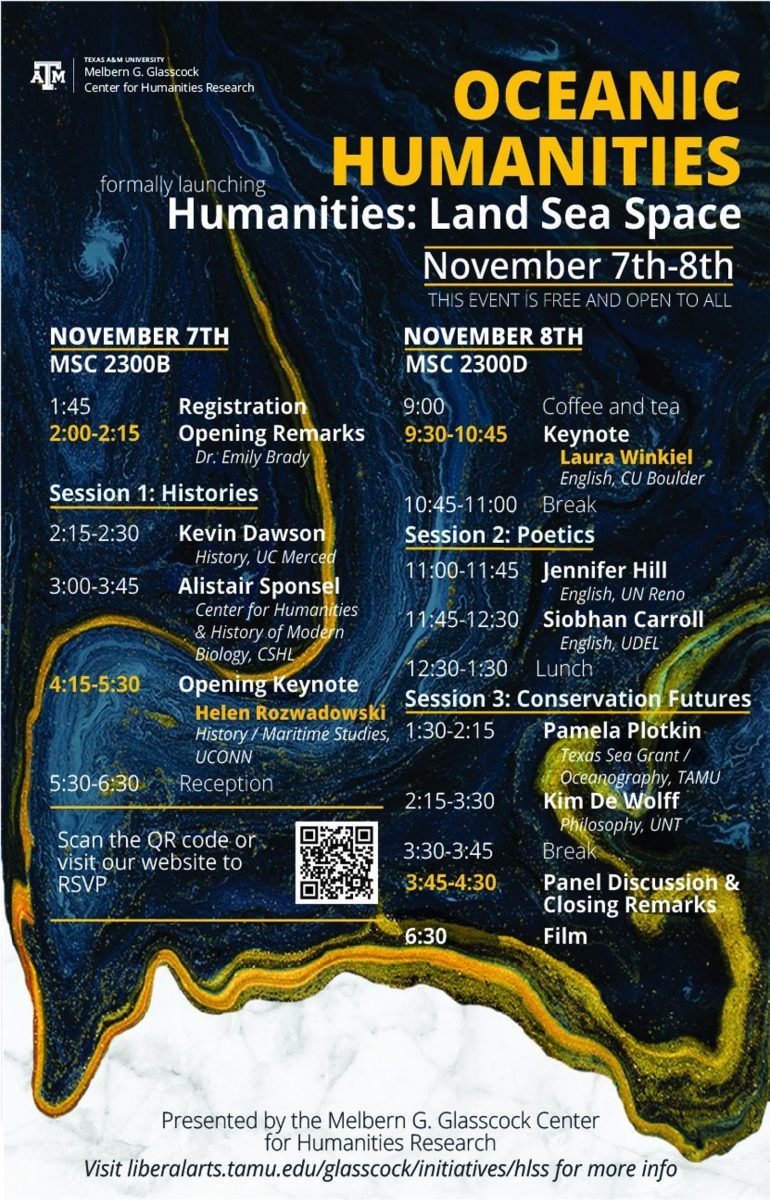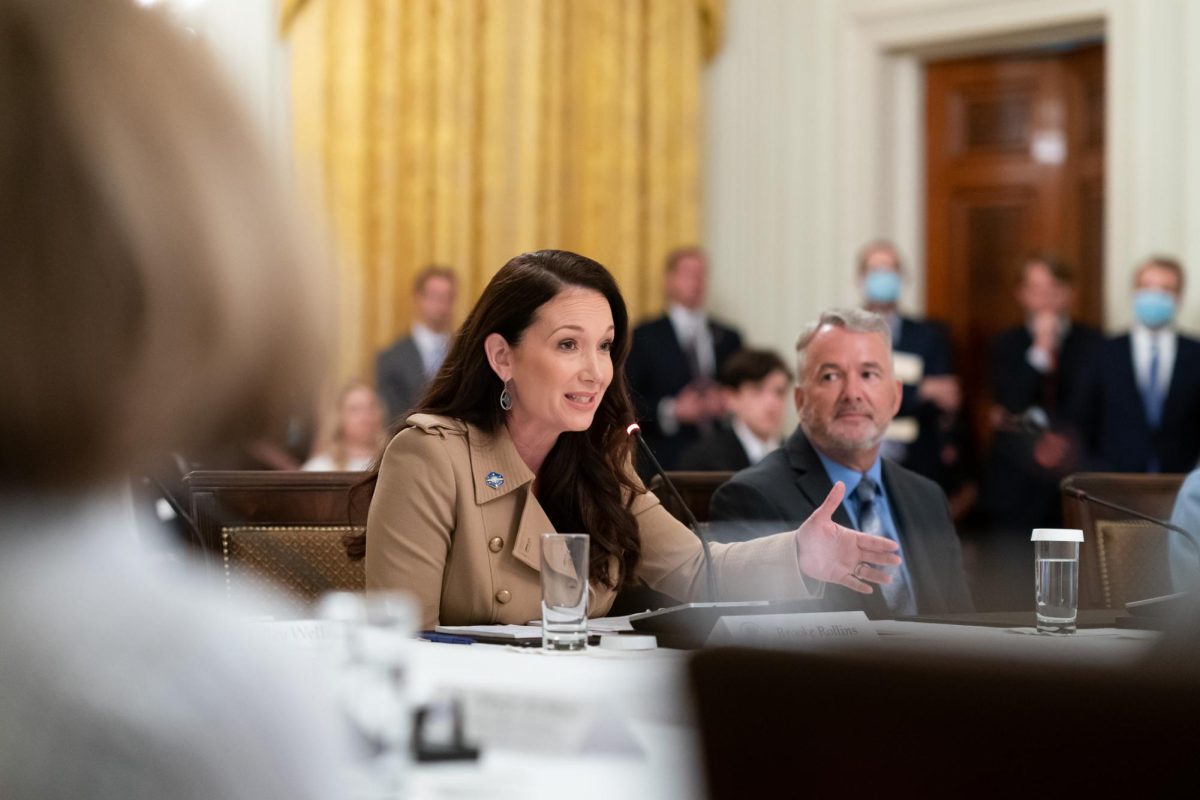The Glasscock Center for Humanities Research will host its Ocean Humanities Symposium on Thursday and Friday as part of their current initiative, Humanities: Land Sea Space.
The two-day symposium will take place in the Memorial Student Center’s Bethancourt Ballroom, with day one happening in room 2300B and day two in room 2300D. The symposium is split into three sessions: “histories,” “poetics” “conservation futures.” The event will include lunch, so RSVPs are recommended. The symposium will end with a screening of the film “Anote’s Ark” followed by a discussion panel. The Cushing Library is also having a pop-up exhibit related to the Oceanic symposium that will be open starting Thursday.
The Oceanic Humanities Symposium is the first event in the Humanities: Land and Sea Space initiative that was developed this fall, said Glasscock Center director Emily Brady.
“This year, our theme is the sea, so the Oceanic Humanities Symposium is an event which will bring together humanities scholars to talk about historical, literary and environmental issues related to the world’s oceans and seas,” Brady said.
The theme of the sea was chosen to launch the new initiative because it is a topic that comes up frequently in environmental discussions, Brady said.
“The initiative is addressing what the humanities can say about these kinds of environmental problems [and] how can humanities help scientists address environmental challenges,” Brady said.
The symposium is showcasing a variety of research from different department fields, such as nautical archeology and anthropology, english, oceanography and philosophy. Nautical Archeology professor Kevin Crisman is the chair for the histories session, and he said he’s looking forward to seeing a variety of different perspectives on the topics discussed.
“That’s one of the things I really enjoy about being at Texas A&M and being at a large university,” Crisman said. “You have so many opportunities to hear from people knowledgeable [about topics] you’re not familiar with.”
The symposium will also have other researchers from other universities attending and showcasing their research. Diego L. Gil Agudelo, a director of research operations at Texas A&M Galveston is the chair for the session about conservation futures. Gil Agudelo said humans obtain plenty of services from the oceans that affect our everyday lives, so it’s humanity’s responsibility to make sure the ocean stays healthy.
“Helping the ocean depends on all of us,” Gil Agudelo said. “What are some of these actions that we can actually put together in order to preserve the oceans as we know it?”
The symposium is open to everyone to attend, and Brady said it will be a great way to learn about the effects humans have had on the oceans by looking at all the different perspectives presented in research.
“The takeaway should be the importance of thinking beyond the land,” Brady said. “To think about the value of the oceans and seas, to think about how they’ve been imagined in human history and to think about their future from a conservation perspective.”
The state of the oceans and seas are critical for everyone and Cisman said that all should understand the importance of it.
“The oceans are a vital part of our lives whether we know it or not,” Cisman said. “The health of the seas and our understanding of it is important in our lives.”
More information about the Oceanic Humanties Symposium can be found at iberalarts.tamu.edu/glasscock/initiatives/hlss-current-events/.
Symposium to explore complex relationship between humans and oceans
November 5, 2019
Photo by Provided
Oceanic Humanities
0
Donate to The Battalion
Your donation will support the student journalists of Texas A&M University - College Station. Your contribution will allow us to purchase equipment and cover our annual website hosting costs.
More to Discover









